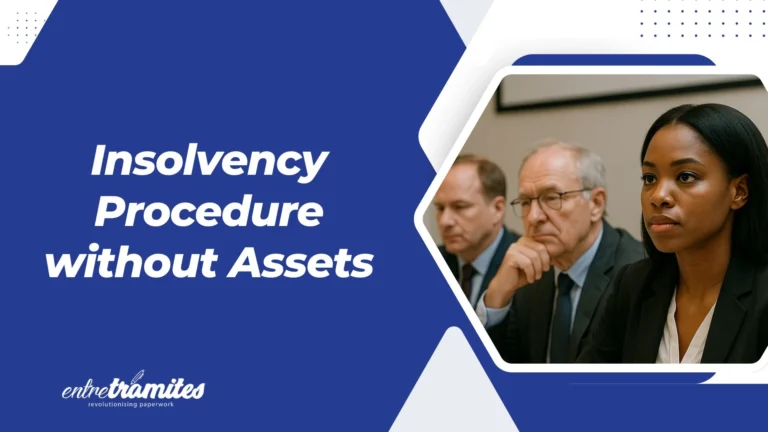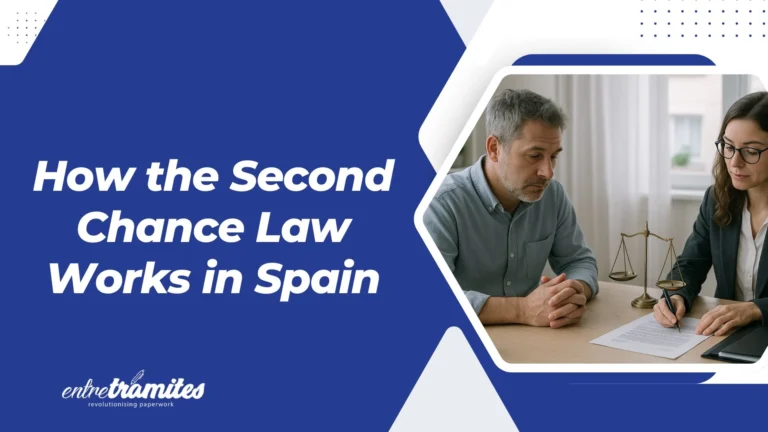What Are Insolvency Proceedings in Spain?
Insolvency proceedings (concurso de acreedores) are judicial processes regulated by the Spanish Insolvency Law to manage situations where companies or individuals cannot meet their financial obligations.
In 2025, insolvency remains a structured way to handle financial distress, offering two main solutions:
- Debt restructuring: negotiate payment reductions, extensions, or new conditions with creditors.
- Liquidation: sell assets to pay debts if continuation is not viable.
Types of Insolvency Proceedings
In Spain, insolvency can take different forms:
- Voluntary insolvency: initiated by the debtor facing current or imminent insolvency.
- Necessary insolvency: requested by creditors when payments are not met (wages, taxes, etc.).
- Express insolvency (without assets): a fast-track process for micro-companies or individuals with minimal or no assets, where proceedings would cost more than the value of the estate.
New Updates in 2025: Organic Law 1/2025
The Organic Law 1/2025, effective since April 2025, brings major changes:
- Specialised commercial courts for insolvency cases.
- Digitalisation of insolvency procedures.
- New rules for express insolvency and appointment of administrators.
- Improved online auctions of assets.
These updates aim to make insolvency more agile, transparent, and cost-efficient.
Stages of Insolvency Proceedings
The process includes:
- Filing the request: at the Commercial Court, proving current or foreseeable insolvency.
- Common stage: inventory of assets and liabilities, classification of creditors, appointment of an administrator (except in express proceedings).
- Agreement or liquidation stage:
- Agreement: debtor and creditors negotiate reductions or payment plans.
- Liquidation: assets are sold if no agreement is reached or the company is not viable.
- Agreement: debtor and creditors negotiate reductions or payment plans.
Express Insolvency in Spain
Regulated under Article 37 bis TRLC (RDL 1/2020) and updated by the 2022 reform and Organic Law 1/2025 in Spanish Ley Orgánica 1/2025, express insolvency applies when:
- The debtor has no attachable assets, or their value is less than the cost of proceedings.
- The judge declares the case “express” and publishes it in the BOE (Official State Gazette).
- Creditors holding at least 5% of liabilities may appoint and fund an administrator within 15 days.
- For individuals, the case may open the way to the Second Chance Law (Ley de Segunda Oportunidad), allowing debt discharge under certain conditions.
Who Benefits from Insolvency Proceedings?
- Companies seeking restructuring instead of liquidation.
- Individuals facing insolvency who want debt relief through the Second Chance Law.
- Freelancers and SMEs, who can access the simplified or express procedure.
Deadline to File for Insolvency
The debtor must request insolvency within two months of knowing or being expected to know about their insolvency situation. Failure to do so may lead to liability for worsening the financial situation.
Why Understanding Insolvency Proceedings Matters
- Avoids fines and personal liability for late filing.
- Provides opportunities for negotiation and business continuity.
- Protects assets through express proceedings or the Second Chance Law.
Frequently Asked Questions
What is the difference between ordinary and express insolvency?
Express insolvency is faster and simpler, applied when there are no attachable assets. Ordinary insolvency involves full stages with administrators from the beginning.
What is the agreement stage?
It is the negotiation phase where creditors and the debtor agree on new payment terms, aiming to continue business operations.
How are employees affected during insolvency?
Employment contracts do not automatically end. If the company continues operating, salaries must be paid. Otherwise, dismissals or ERTEs (temporary layoffs) may apply.In 2025, insolvency proceedings in Spain have become more flexible and efficient, especially with the Organic Law 1/2025 in Spanish Ley Orgánica 1/2025 promoting digitalisation and simplified procedures. For both businesses and individuals, acting early and understanding your legal options is key to managing insolvency effectively and protecting your financial future.
You can also contact us directly through this contact Form for us to call you, or if you prefer, you can schedule a free consultation or write to us on WhatsApp. We’re here to make the process easier for you!.




